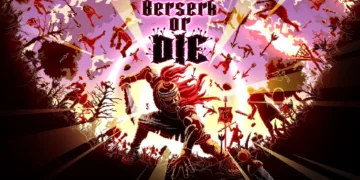Louis Theroux’s return to the West Bank after 14 years reveals a landscape transformed by extremism. His 2011 documentary “The Ultra Zionists” captured what seemed like a fringe movement driven by religious nationalism. Today, that fringe has become mainstream political reality. The numbers tell a stark story: over 700,000 settlers now occupy Palestinian territory, representing roughly 10% of Israel’s entire Jewish population. This massive expansion has occurred while international law continues to classify these settlements as illegal.
The documentary arrives at a particularly volatile moment. Following the October 7 Hamas attacks and the ensuing Gaza war, settler violence and displacement activities have reached unprecedented levels. Theroux’s investigation reveals how what was once considered radical ideology has gained substantial political backing within Israel’s far-right coalition government. The film focuses on key figures within the settler movement, allowing them to articulate their vision for Palestinian displacement with chilling clarity.
Theroux’s reputation for gaining intimate access to controversial subjects serves him well here. His approach allows viewers to witness the settler ideology from the inside, hearing directly from those who advocate for ethnic cleansing while living on land taken from Palestinian families. The documentary sets up a clear framework: these are not isolated extremists but part of a coordinated movement with government support and religious justification.
The Documentarian’s Dilemma: When Neutrality Becomes Complicity
Theroux’s stylistic evolution in “The Settlers” marks a significant departure from his established documentary persona. His traditional “faux-naïf” approach—the bumbling, seemingly naive questioner who disarms subjects with apparent innocence—proves inadequate when faced with the reality of systematic oppression. The gravity of the situation forces him to abandon his comfort zone and adopt a more direct, confrontational stance.
This shift becomes most apparent in his exchanges with Daniella Weiss, the self-proclaimed “godmother” of the settler movement. When she physically shoves him during their interview, attempting to provoke a reaction that could be manipulated on camera, Theroux refuses to take the bait. Instead, he delivers what may be the most direct critique of his career, calling her worldview “sociopathic.” This moment represents a watershed in his approach to documentary filmmaking.
The dangerous environment itself demands this evolution. When armed settlers point laser sights through windows while he interviews Palestinian families, when Israeli soldiers surround buildings with rifles drawn, when he must repeatedly ask people to lower their weapons during conversations, the luxury of maintaining journalistic distance evaporates. His visible frustration when witnessing Palestinian restrictions—particularly when soldiers prevent his Palestinian guide from accessing certain areas—reveals how the situation has pushed him beyond his usual diplomatic boundaries.
Extremism Unmasked: The Settler Leadership Speaks
The documentary’s most powerful moments come when settler leaders articulate their vision without filter or euphemism. Daniella Weiss, who boasts of her direct access to Netanyahu’s aides, dismisses war crimes as “light felonies” with casual laughter. Her attempt to reach the Gaza boundary during active military operations reveals the movement’s ambitious scope—she openly discusses plans for Jewish settlement in Gaza even as the territory faces devastating assault.
Weiss’s denial of settler violence against Palestinians becomes particularly revealing when she physically confronts Theroux, attempting to demonstrate how footage can be manipulated. Her suggestion that Palestinian victims somehow provoke their attackers exposes the twisted logic that underpins settler ideology. Her 50-year involvement in the movement lends her words particular weight—this is not youthful extremism but decades of calculated expansion.
Ari Abramowitz, the Texas-born settler who refuses to acknowledge Palestinian existence, embodies the American dimension of this movement. Armed and uncompromising, he describes Palestinians as a “death cult” while advocating for their removal. His immigrant status makes his denial of Palestinian rights particularly jarring—an American claiming exclusive rights to land where Palestinian families have lived for generations.
Rabbi Dov Lior’s contribution is perhaps most chilling: his description of Palestinians as “savages” and “camel-riders” who should be “cleansed” from Gaza and Lebanon. His religious authority lends supposed legitimacy to explicitly genocidal language. These American-born settlers bring their own cultural attitudes to the conflict, creating a particularly toxic blend of religious fundamentalism and colonial entitlement.
Life Under Occupation: The Palestinian Experience
The documentary’s strength lies in its ability to show rather than tell the reality of Palestinian life under occupation. Issa Amro, the Palestinian activist who guides Theroux through Hebron, faces restrictions on his movement even while accompanying international journalists. Soldiers question his right to be in certain areas of his own city, creating a hierarchy of access that privileges settlers over indigenous Palestinians.
The daily humiliations are systematic and designed to break Palestinian resistance. Checkpoint systems control every aspect of movement, turning simple journeys into lengthy ordeals. Palestinian farmers face prohibition from harvesting their own olive trees, while settlers enjoy unrestricted access to the same areas. The forced detours Palestinians must take to navigate around settlements transform their historic cities into fragmented territories.
The atmosphere of intimidation is constant and deliberate. Armed settlers point laser sights through windows at Palestinian homes where Theroux conducts interviews. Military vehicles surround houses at night, creating an environment of perpetual surveillance and fear. The documentary captures how Palestinians have been forced to normalize this violence as part of their daily existence.
What emerges is a picture of systematic oppression supported by legal frameworks that privilege settlers over Palestinians. The brief glimpses of Israeli peace activists attempting to protect Palestinian farmers provide some hope, but they appear overwhelmed by the scale of the settler project. The documentary reveals how the Israeli military apparatus has become integral to protecting and expanding settler activities, creating what Theroux describes as an “unequal system of rights and justice.”
Louis Theroux: The Settlers is a BBC documentary film released on April 27, 2025. It was commissioned by the BBC’s Head of Documentary Commissioning Clare Sillery. The documentary is 61 minutes long. This documentary can be watched on BBC Select, which is available on Amazon Prime Video Channels, the Apple TV app and The Roku Channel.
Full Credits
Director: Joshua Baker
Writers: Matan Cohen, Louis Theroux
Producers: Sara Obeidat, Matan Cohen
Executive Producers: Arron Fellows, Fiona Stourton
Cast: Louis Theroux, Matan Cohen, Ari Abramowitz, Issa Amro, Mohammad Hureini, Daniella Weiss
The Review
Louis Theroux: The Settlers
"The Settlers" represents Theroux at his most essential—abandoning comfortable neutrality to expose dangerous extremism. By allowing settler leaders to reveal their ideology without filter, the documentary creates a devastating portrait of systematic oppression. Theroux's evolved approach proves that sometimes the most powerful journalism requires abandoning diplomatic distance for moral clarity.
PROS
- Theroux's bold stylistic evolution enhances impact
- Settler subjects expose their own extremism convincingly
- Powerful documentation of Palestinian daily reality
- Excellent balance of access and moral clarity
- Timely examination of escalating conflict
CONS
- Limited exploration of Israeli peace activists
- Could benefit from more Palestinian voices
- Some context about government support remains unexplored
















































